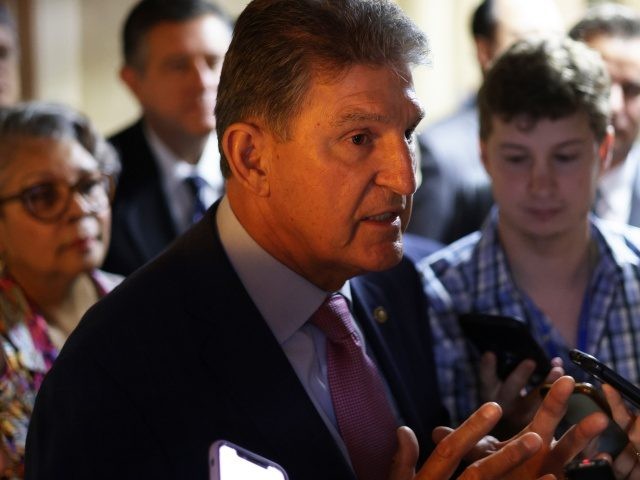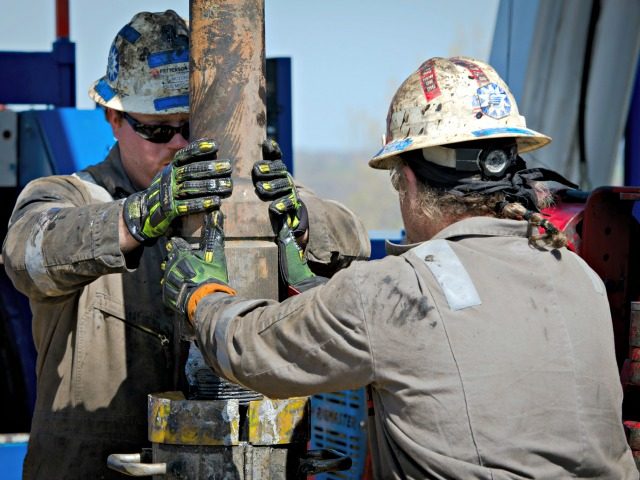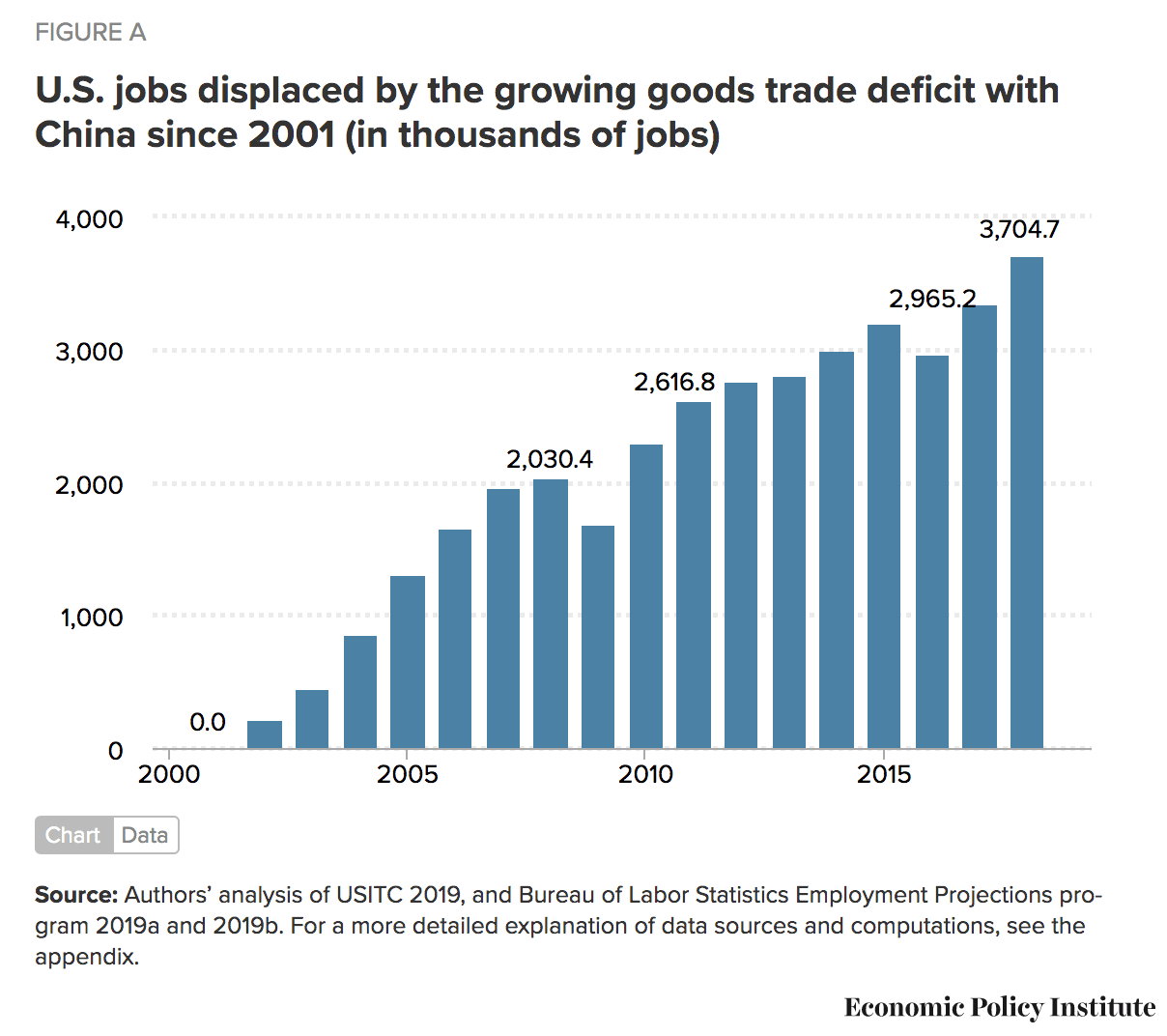JOE BIDEN HAS LIED FROM THE VERY FIRST DAY. HERE IS THE REALITY OF HIS HISTORY AND CON JOBS TO SERVE THE RICH:
Don’t be fooled by Joe Biden
Chris Hedges | NAFTA, Clinton, and Obama BETRAYED Americans
Swing State Democrats Tank ‘Hire American’ Rule in Infrastructure Bill

A handful of Senate Democrats, representing swing states, joined the majority of their caucus in helping tank a plan that would have required American infrastructure jobs go to American citizens and legal immigrants, not illegal aliens.
Last week, Sen. James Lankford (R-OK) proposed an amendment to the infrastructure bill that would have prohibited federal funds going to any entity that failed to enroll in and comply with the E-Verify program to ensure illegal aliens are not hired for infrastructure jobs over Americans and legal immigrants.
The amendment failed when a number of swing state Senate Democrats joined most of their colleagues in opposing the “Hire American” requirement, including:
- Joe Manchin (D-WV)
- Kyrsten Sinema (D-AZ)
- Jon Tester (D-MT)
- Debbie Stabenow (D-MI)
- Jeanne Shaheen (D-NH)
- Jacky Rosen (D-NV)
- Tammy Baldwin (D-WI)
- Michael Bennet (D-CO)
- Sherrod Brown (D-OH)
- Bob Casey (D-PA)
- Catherine Cortez Masto (D-NV)
- John Hickenlooper (D-CO)
- Gary Peters (D-MI)
The “Hire American” amendment was supported by 53 Senators — including all Senate Republicans and Senate Democrats Maggie Hassan (D-NH), Tim Kaine (D-VA), Mark Kelly (D-AZ), Jon Ossoff (D-GA), and Raphael Warnock (D-GA).
On Tuesday, without securing the “Hire American” requirement, 19 Senate Republicans helped pass the infrastructure bill.
Those Senate Republicans include Dan Sullivan (R-AK), Shelley Moore Capito (R-WV), Mike Crapo (R-ID), Roy Blunt (R-MO), Richard Burr (R-NC), Deb Fischer (R-NE), Lindsey Graham (R-SC), Rob Portman (R-OH), Thom Tillis (R-NC), Lisa Murkowski (R-AK), Jim Risch (R-ID), Chuck Grassley (R-IA), Bill Cassidy (R-LA), Kevin Cramer (R-ND), Roger Wicker (R-MS), Mitch McConnell (R-KY), John Hoeven (R-ND), Susan Collins (R-ME), and Mitt Romney (R-UT).
John Binder is a reporter for Breitbart News. Email him at jbinder@breitbart.com. Follow him on Twitter here.
Senate Republicans Greenlight Outsourcing of U.S. Manufacturing Jobs with Infrastructure Bill Passage

A group of 19 Senate Republicans helped greenlight outsourcing of American manufacturing jobs with the passage of the so-called bipartisan infrastructure bill that provides giant carve-outs for industries to bypass “Buy American” rules.
On Tuesday, 19 Senate Republicans joined Senate Democrats in a 69-30 vote to pass the Infrastructure Investment and Jobs Act. Those Senate Republicans include:
Dan Sullivan (R-AK), Shelley Moore Capito (R-WV), Mike Crapo (R-ID), Roy Blunt (R-MO), Richard Burr (R-NC), Deb Fischer (R-NE), Lindsey Graham (R-SC), Rob Portman (R-OH), Thom Tillis (R-NC), Lisa Murkowski (R-AK), Jim Risch (R-ID), Chuck Grassley (R-IA), Bill Cassidy (R-LA), Kevin Cramer (R-ND), Roger Wicker (R-MS), Mitch McConnell (R-KY), John Hoeven (R-ND), Susan Collins (R-ME), and Mitt Romney (R-UT)
As Breitbart News reported, the bill allows the heads of federal agencies to issue waivers to corporations to work around Buy American requirements if they consider the requirement “inconsistent with the public interest,” does not meet “satisfactory quality,” or if they believe buying American will increase costs for the projects.
The bill reads:
The head of a Federal agency that applies a domestic content procurement preference under this section may waive the application of that preference in any case in which the head of the Federal agency finds that:
- applying the domestic content procurement preference would be inconsistent with the public interest;
- types of iron, steel, manufactured products, or construction materials are not produced in the United States in sufficient and reasonably available quantities or of a satisfactory quality; or
- the inclusion of iron, steel, manufactured products, or construction materials produced in the United States will increase the cost of the overall project by more than 25 percent.
The waivers will only be reviewed every five years, according to the bill, and will have to be justified in the Federal Register with a public comment period of no fewer than 30 days.
Due to China’s dominance in steel and manufactruing, the carve-outs are likely to be a massive benefit for corporations in China that often are linked to the Chinese Communist Party and party officials.
Republican support for the infrastucture plan, with the Buy American waivers included, comes even as Republican and conservative voters increasingly oppose foreign imports — considering them a threat to the nation’s domestic manufacturing industries — and huge opposition to China’s economic rise.
In April, 51 percent of Republican voters told Gallup pollsters they held a negative view of foreign trade, specifically foreign imports, seeing it as a threat to the U.S. economy. By comparison, in the year 2000, 59 percent of Republican voters had a positive view of foreign trade.
Meanwhile, the latest Pew Research Center survey finds that Republicans who now say that limiting China’s influence and power is a top priority has increased from 39 percent in 2018 to 63 percent in 2021. The loss of American jobs to China remains one of Americans’ biggest concerns with the communist county, the survey reveals.
From 2001 to 2018, U.S. free trade with China has eliminated at least 3.7 million American jobs. In 1985, before China entered the WTO, the U.S. trade deficit with China totaled $6 billion. In 2019, the U.S. trade deficit with China totaled more than $345 billion.
American manufacturing is vital to the U.S. economy, as every one manufacturing job supports an additional 7.4 American jobs in other industries.
John Binder is a reporter for Breitbart News. Email him at jbinder@breitbart.com. Follow him on Twitter here.
Bidenflation: Real Hourly Pay Suffers One of the Worst Collapses Ever

It is getting harder and harder for American workers to make ends meet as rising inflation outpaces pay gans, pushing down inflation-adjusted compensation at a pace almost never seen before.
Adjusted for inflation, hourly compensation fell 2.7 percent in the second quarter, data released by the Bureau of Labor Statistics on the nonfarm business sector showed Tuesday.
Real compensation fell 2.8 percent in the fourth quarter of 2011. That decline came in part because unadjusted wage gains were very small, just 0.5 percent. The economy was just extremely sluggish, with a low level of demand for labor following the financial crisis and the collapse of the housing bubble. The consumer price index increased 3.3 percent in the quarter.
The only other comparable contraction was in the first quarter of 1974, when real compensation fell 2.1 percent. That was in an atmosphere that was also very different from today’s, with extremely high inflation meaning prices outpaced wage gains. Consumer prices jumped 9.1 percent and wages rose 7.6 percent.
In the most recent quarter, unadjusted hourly compensation rose 2.0 percent compared with the 2020’s April through June period. CPI, however, was up 4.8 percent.

The losses to inflation are getting worse. Compared with the first quarter, real hourly compensation in the nonfarm business sector fell 4.8 percent.
Manufacturing compensation fell 3.3 percent compared with the start of the year and four percent compared with a year ago. That is the worst collapse ever. Compensation in durable goods manufacturing fell 2.8 percent on a quarterly basis and 4.3 percent from a year ago. Nondurable goods compensation was down 3.4 percent on both an annual and a quarterly basis.


No comments:
Post a Comment